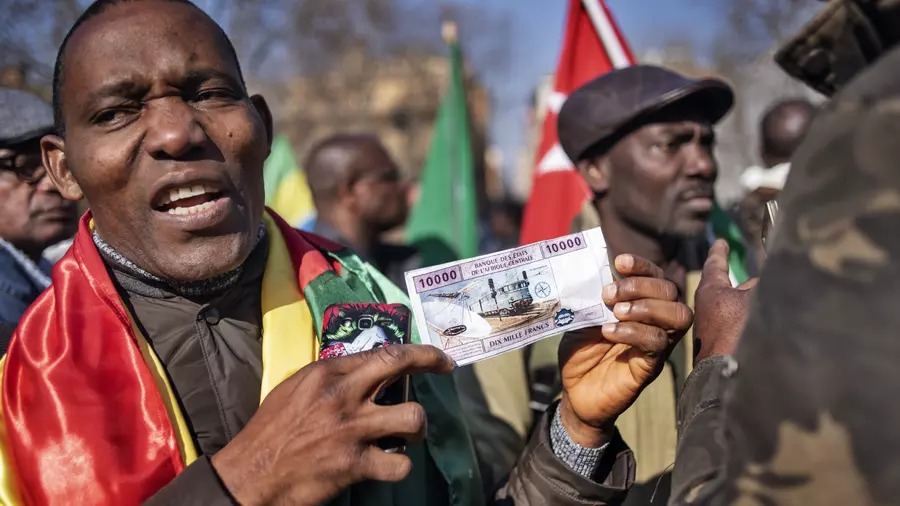As the Sahel states Mali, Niger, and Burkina Faso – which formed the A3 alliance in 2017 – strive to assert their economic autonomy, they face significant challenges posed by the historical context of colonial monetary systems such as the CFA franc zone. This article explores the complex history of the CFA franc and its impact on Africa’s development, as well as potential solutions to promote greater economic independence for these nations.
The CFA franc was created in 1945 by France as a means of controlling its African colonies and maintaining political influence over them after they gained independence. The currency was pegged to the French franc and later to the euro, with African countries required to deposit their foreign exchange reserves with the French Treasury. This system allowed France to continue exercising significant control over its former colonies’ economies even after decolonization.
The CFA franc zone currently includes 14 West and Central African countries that are members of two separate monetary unions: the West African Economic and Monetary Union (UEMOA) and the Economic and Monetary Community of Central Africa (CEMAC. Each union has its own central bank, which is responsible for managing the currency and implementing monetary policy. However, these banks must consult with the Bank of France before making any major decisions, giving the French government significant influence over their operations.
In December 2019, French President Emmanuel Macron and Ivorian President Alassane Ouattara announced a reform plan aimed at modernizing the West African CFA franc and reducing French influence. The three key changes of the reform include renaming the currency to the ‘Eco,’ abolishing the requirement for WAEMU countries to deposit their reserves in the French Treasury, and withdrawing French representatives from the boards of the central bank of the WAEMU, known by its French acronym BCEAO (Banque Centrale des États de l’Afrique de l’Ouest.
While these reforms represent a step towards greater autonomy for West African countries within the CFA franc zone, critics argue that they do not go far enough in addressing the underlying issues of colonial influence and dependency on single export commodities. Some activists believe that France has undermined reform attempts by African governments, as progress has stalled.
Despite some positive results in the aftermath of the 2019 reform, its main goals remain unachieved, and even though it is expected that the changes will have come into effect by 2027, some critics believe they will be only symbolic and will not guarantee transition to fully sovereign monetary policy for the region.
While the historical context and current systems such as the CFA franc zone present significant hurdles, there’s a growing movement toward economic autonomy. Several promising solutions exist, including regional integration, diversification, and financial inclusion. Increased economic and trade ties between African nations can develop a larger, more resilient market. Pivoting away from an overwhelming dependence on a single export commodity is crucial in building autonomy. Investing in infrastructure and developing diverse industries will allow African nations to weather fluctuations in global markets.
In conclusion, the Sahel states of Mali, Niger, and Burkina Faso face significant challenges as they strive for economic autonomy amidst the historical legacy of colonial monetary systems such as the CFA franc zone. While reforms have been implemented, critics argue that more substantial changes are needed to truly achieve sovereignty over their economies. Potential solutions include regional integration, diversification, and financial inclusion, which can help promote greater economic independence for these nations in the long run.

